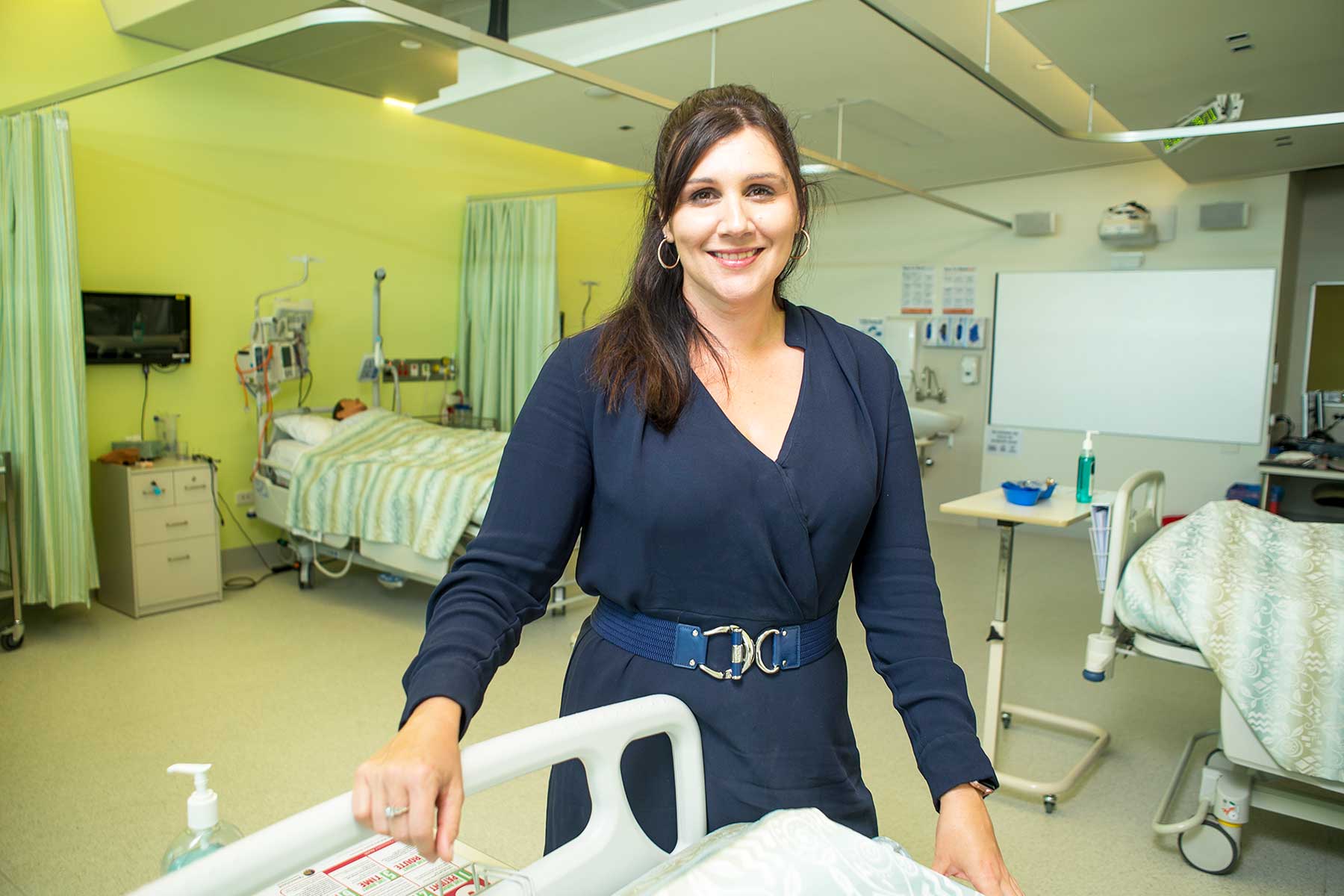The Australian College of Nursing (ACN) supports all nurses to advocate for and promote sustainable practices within their workplaces and communities. As part of this, we are proud to have an Emissions Reduction Policy Chapter which draws from the expertise of our membership and focuses on how the carbon footprint can be reduced through nursing leadership.
In the coming months, members of the Policy Chapter will be sharing with us personal stories about how they are using their nursing skills and expertise to reduce emissions in their workplaces and communities. In the first article, Deputy Chair Dr Aletha Ward MACN shares with us how she has advocated for change in her workplace. If you have a story about a nurse-led emissions reduction initiative, we would love to hear it! Please get in touch with us at publications@acn.edu.au for more information.
I always had an interest in nursing as my grandmother was a nurse. However, after a trip overseas to a developing country when I was 18, I developed a passion for public health nursing. It was always my intention to base myself within the public health sphere, however it took me many years to transition into that area after becoming a Registered Nurse. In almost twenty years as a Registered Nurse, I have been fortunate to have had a diverse health care background. I have worked in cardiac care, cardiac clinical trials and clinical workforce development before transitioning into academia. I have been fortunate in academia to complete my PhD in social health policy and now teach and research in public health, focusing on health equity and social health policy.
I believe in our profession, all nurses have the ability to advocate, educate and communicate important issues that impact on the health and wellbeing of all. Climate change is having, and will continue to have, an escalating negative impact on the health of communities all around the world. Nurses are in a unique position to educate, advocate and communicate what is required (through implementation science) to create social change and policy direction to reduce emissions. As trusted health care professionals, we look after those who are most at risk of the impact of climate change and hence, it is essential that we use our skills, knowledge and voice to reduce emissions and lead by example in both our professional and personal lives.
Whilst I am not in a clinical area, I have still advocated for change within my workplace (a tertiary institution). I have done so by:
- Creating a narrative (including course materials) in nursing education around the impact of climate change and the importance of emission reduction;
- Advocating for important initiatives within my educational institution including solar panels, recycling, waste reduction and energy efficient measures;
- Reducing travel to conferences and meetings when this can be done as an online option and encouraging my colleagues to do the same;
- Creating, maintaining and supporting a policy debate around emissions reduction in health care as the Deputy Chair of the ACN Emissions Reduction Policy Chapter.
Additionally, I am personally committed to lead by example. At home I have created extensive composting, recycling and energy reduction systems. I am fortunate enough to drive a hybrid car and limit unnecessary travel due to my concerns in emissions. I am also involved in educating community groups on emissions reduction in my local region, regenerating my property to ensure it is carbon neutral and am mindful in limiting my impact on the environment around me.
Ultimately, we all are not doing enough. More needs to be done for what is now a climate emergency. Significant action must be taken NOW to reduce our emissions. As a concerned nurse, mother, grandmother and teacher, I believe nurses are in a unique position to communicate the science and practical applications of emissions reductions to our peers, communities and policy makers.
Written by Dr Aletha Ward PhD., MBA., BNurs., R.N., gAICD. MACN





